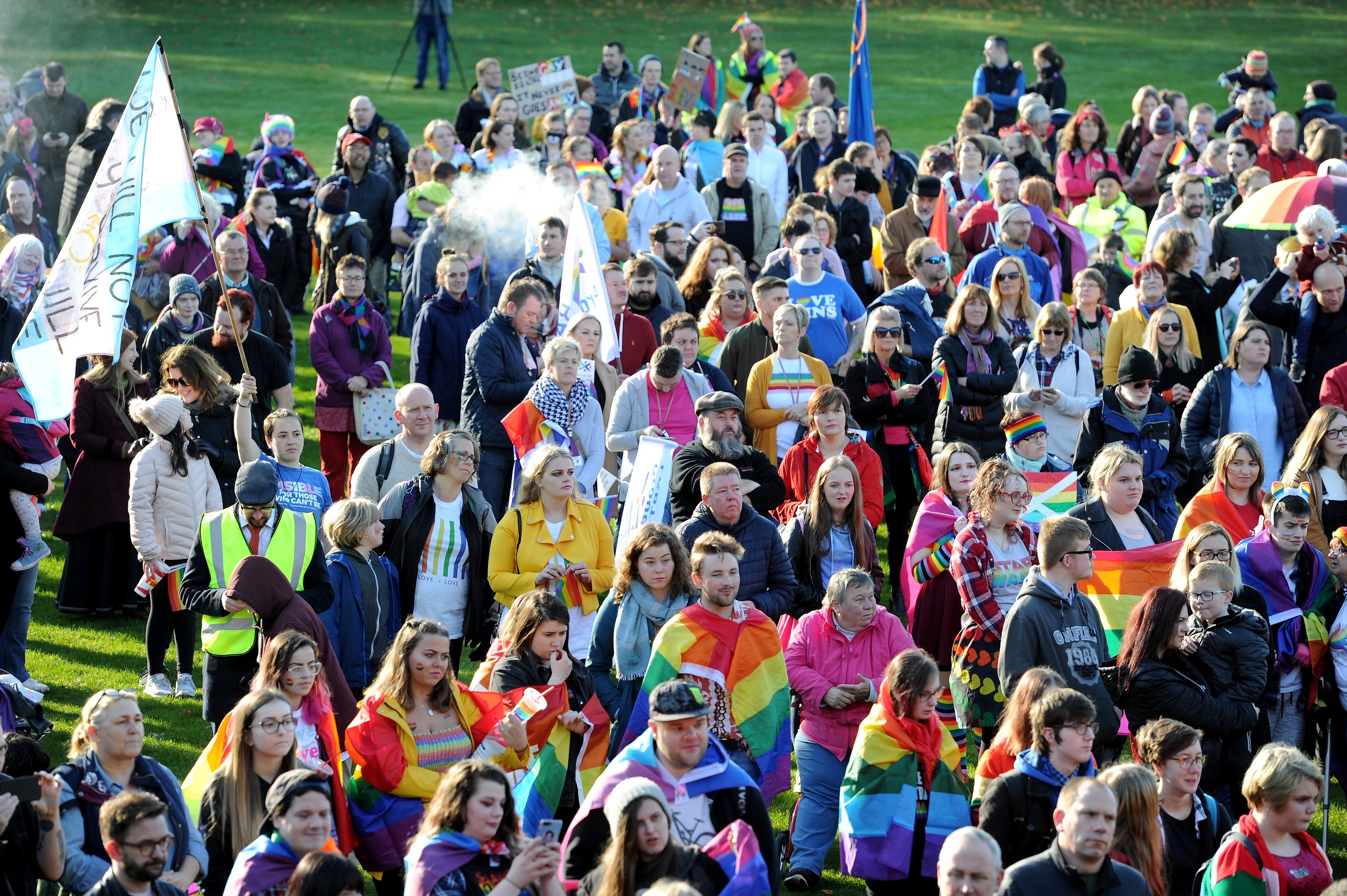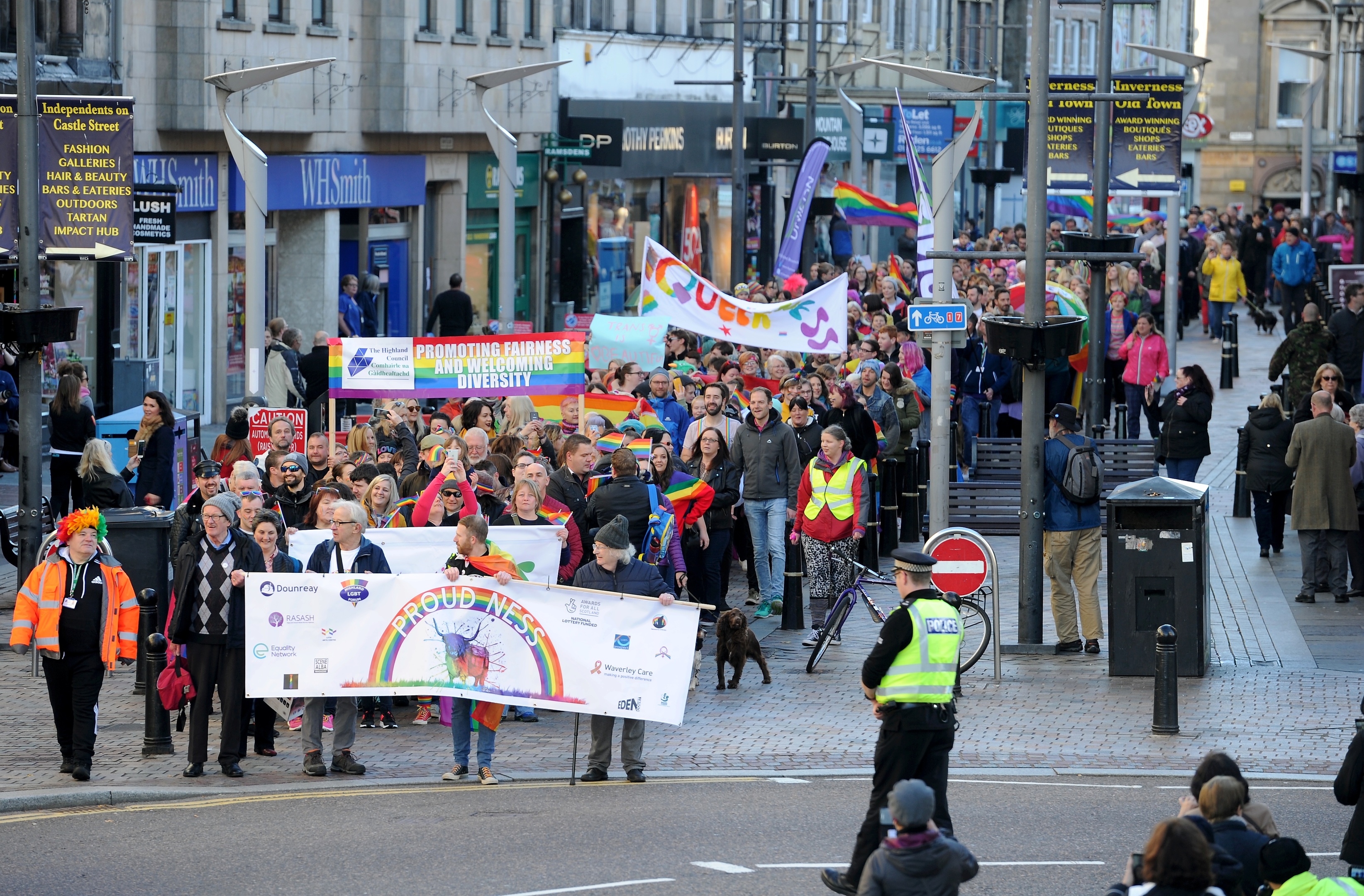Supporters have hailed the success of two weekend Pride marches across Inverness and Stornoway as a watershed moment for LGBT rights in the Highlands and Islands.
Proud Ness in the capital was celebrated by church leaders and prominent cultural figures along with 3,000 people marching through the city centre in the first major Pride event in the city for 15 years.
Organisers had initially expected about 2,000 people to attend but hundreds more turned up later in the day for events at Eden Court.

During the run up to Proud Ness, Donald Morrison, a home mission worker with the Free Church of Scotland (Continuing) submitted a petition with 564 signatures to the local Highland Council opposing the Proud Ness parade.
However, the event went ahead and the local authority ended up flying the rainbow flag in support of the march above the council headquarters and Inverness Town House.
Pride Hebrides took place for the first time ever in Stornoway on Saturday and was attended by about 200 marchers.
Church leaders had also called on the Western Isles Council to stop the parade from happening.

Churchgoers on the Isle of Lewis issued a last-gasp demand for the council to ban the gay pride march but the local authority allowed it to go ahead under its equalities policy.
The local authority refused to fly the LGBT rainbow flag because it contradicted its flag policy and because they did not have anybody to put it up and take it down at weekends.
Marchers yesterday revealed how they felt “liberated” attending the Pride event in Inverness.
The day started with the march through Inverness city centre from Falcon Square via the High Street and then across the river eventually ending at the Northern Meeting Park.
Reverend Peter Nimmo gave a speech at the end of the march along with NHS Highland chief executive Elaine Mead and Eden Court chief executive James Mackenzie-Blackman.
It culminated in a series of events at Eden Court and an after-party at the city’s Mercure Hotel in the evening.
>> Keep up to date with the latest news with The P&J newsletter
One of the marchers, Carrie Bates, 63, said the day had felt liberating because she has struggled with admitting her sexuality for many years.
She said: “I was in the closet for a very long time and it took me ages to come out and then I popped back in the closet for a few years because I got scared again. But I am now out and have been for a number of years.
“It feels really good to be who I am and not have to hide who I am.
“I don’t openly go around telling people for the sake of telling people, if it comes up in conversation then it comes up in conversation – it is part of normal life.”
Local MP Drew Hendry said the popularity of the march showed that Inverness was an “inclusive modern city”. He highlighted the large crowds of people who turned up to wave and cheer on the marchers as they strode past on the street.
He said: “What a fantastic advertisement for Inverness this has been.”
Actress Tilda Swinton was there, she said: “This is respectable society, I think anybody who is here, anybody who would like to be here and supports those of us here – that is respectable society.
“We are all here because we want to be with each other and we are the wise ones.”
Mark Strange, Bishop of Moray, Ross and Caithness said it was important for the Scottish Episcopal Church to show that “the love of God can be shown to all parts of society.”